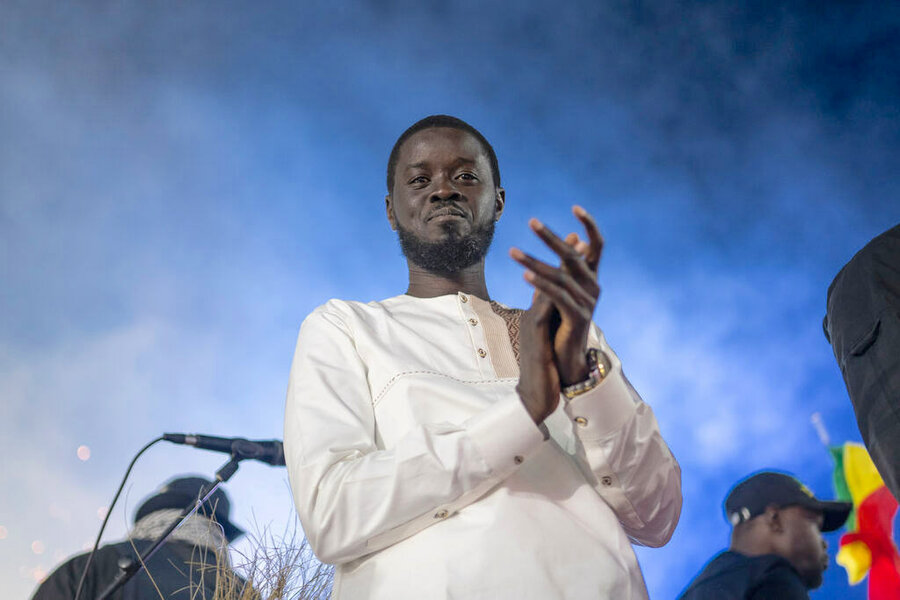Harmony wins in Senegal’s ballot
Loading...
In recent years, the band of African countries straddling the southern edge of the Sahara has struggled with military coups, violent Islamist extremism, and a rejection of regional cooperation on security.
Now Senegal, through a presidential election held Sunday, is showing the antidote to those seemingly intractable problems. It resides in the cornerstones of democracy, such as judicial independence, equality, and vibrant civic participation.
“We are very proud in Senegal to be able to face all our opposition, our difficulties, our misunderstandings, in a democratic way,” Abdoulaye Bousso, director of the civil society group Aar Sunu Election (Protect Our Election), told Al Jazeera. “We have strong institutions.”
The election almost did not happen. Facing term limits that he himself pushed through, President Macky Sall tried to postpone his departure indefinitely. That bid stirred immediate head winds in a country that has never seen a coup d’état and where trust in institutions like the national military runs deep.
Protesters filled the streets. The Constitutional Council, Senegal’s highest court, rejected the delay. Compelled to reverse course, Mr. Sall consented to step down as required by the constitution by April 2 and released two popular opposition leaders he had imprisoned on questionable charges of corrupting youth and fomenting insurrection.
Anger turned to celebration. In a truncated campaign season lasting less than two weeks, 19 candidates filled the ballot – including the first woman ever to run for the presidency. Voter turnout Sunday exceeded 60% – a significant increase since 2022, when a majority of voters frustrated with corruption and economic decline sat out parliamentary elections. Balloting was peaceful. As results were still being counted, a majority of the candidates, including Mr. Sall’s hand-chosen successor in the ruling party, conceded.
Behind bars just 12 days ago, a former tax inspector and anti-corruption leader named Bassirou Diomaye Faye is now Senegal’s presumptive next president. The harmony of that outcome is striking – and not just in Africa, where democracy remains a relatively new experiment. And in a country that is more than 95% Muslim, it rebuts a regional trend suggesting that Islam and democracy are incompatible.
“An instrumental factor in Senegal’s political landscape has been its active and organized civil society, characterized by vibrant youth and social group activism, which has held public officials accountable for upholding term limits and democratic progress,” Emmanuel Yeboah, a regional analyst at the West Africa Democracy Solidarity Network, wrote last month.
At a time when even the world’s most established democracies face internal challenges, voters in Senegal offer proof that when set on values such as transparency and rule of law, the unwritten norms of self-government are secure.







